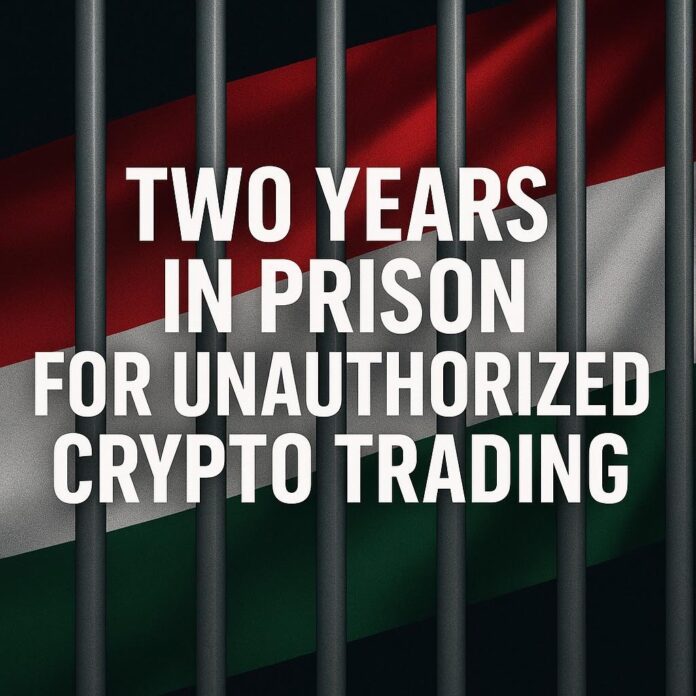A Signal of Stricter Enforcement in Central Europe
A regional court in Hungary has sentenced an individual to two years in prison for operating an unlicensed cryptocurrency trading business and evading taxes on nearly €1 million in profits. The case, first reported by Cointelegraph, underscores a growing trend: Central‑ and Eastern‑European regulators are moving from lenient oversight to active prosecution of gray‑market crypto activity.
The Case at a Glance
- Defendant: A private trader who ran an online service converting Bitcoin to Hungarian forints (HUF) between 2018 and 2020.
- Volume: Roughly 3,500 BTC exchanged, yielding profits equivalent to €940,000 at the time.
- Charges:
- Conducting financial services without a license
- Failure to declare income and pay VAT and personal income tax
- Sentence: Two years’ imprisonment (suspended for five years) and confiscation of illicit gains; a €37,000 fine must also be paid.
Although the prison term is conditionally suspended, the conviction establishes a precedent: unlicensed crypto brokerage is being treated on par with traditional unlicensed financial activity.
Why This Matters
- Regulatory Signaling
Hungary traditionally maintained a light‑touch stance toward retail crypto use. This ruling signals a pivot to enforcement, particularly against high‑volume operators who sidestep licensing. - Tax Integration
Central‑European tax agencies increasingly cross‑reference blockchain analysis with banking data. Failure to report crypto gains is now a criminal, not merely administrative, offense. - MiCA Alignment
Although Hungary will adopt the EU’s Markets in Crypto‑Assets Regulation (MiCA) in 2026, national authorities are already tightening local rules to align with forthcoming pan‑European standards.
Regional Context: A Broader Crackdown
- Poland has required VASP (Virtual‑Asset Service‑Provider) registration since 2021 and has fined several unlicensed exchanges.
- Czechia expanded AML obligations to crypto custodians and brokers in 2022.
- Romania imposed prison terms of up to five years for large‑scale VAT evasion involving crypto in 2023.
Collectively, these moves show the region closing the gap between crypto markets and traditional finance compliance.
Implications for Market Participants
| Stakeholder | Key Takeaway |
|---|---|
| Retail Traders | Declare gains and use licensed platforms; ignorance of tax rules is no defense. |
| OTC Brokers / P2P Operators | Obtain local VASP licensing or risk criminal liability. |
| Exchanges Expanding into CEE | Prepare for rigorous KYC/AML audits and potential joint investigations with tax offices. |
Conclusion
The Hungarian ruling is more than a local headline; it is a bellwether for sharper crypto enforcement across Central Europe. As MiCA marches closer, national regulators are making it clear: the era of informal, high‑volume crypto trading without licensing or tax compliance is rapidly ending.
For industry players, the message is simple: operate by the book — or be prepared for criminal consequences.




